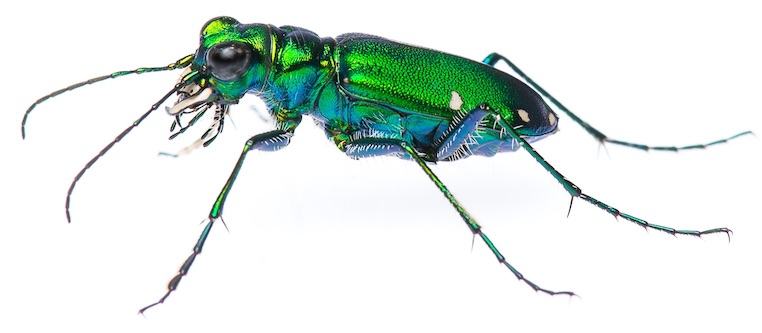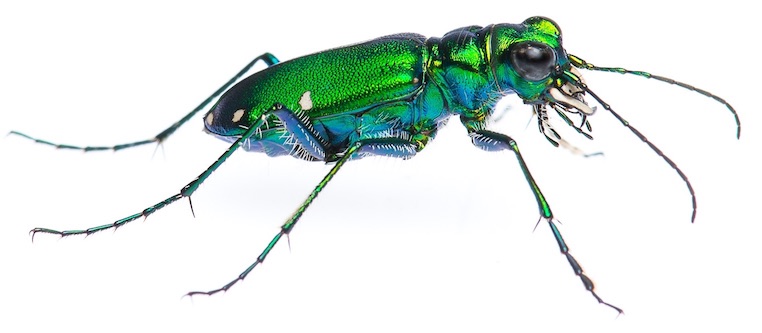Taxonomy
Family: CARABIDAE
Subfamily: CicindelinaeSubgenus: EllipsopteraSynonym: Cicindela blanda Comments: One of thirteen species in this genus, all of which occur in North America north of Mexico with a few also extending southward (Pearson et al., 2015); four have been recorded in North Carolina.Species Status: No subspecies have been described (Pearson et al., 2015)
Identification
Distribution in North Carolina
County Map: Clicking on a county returns the records for the species in that county.
Flight Dates: Click on graph to enlarge
Habitats and Life History
Habitats: This is a riparian species associated with white sandbars located along blackwater rivers (Knisley and Schultz, 1997). In some areas, mud and clay substrates may be used and it can also be found away from the water's edge during flood events. Diet: Predacious, presumably feeding on a wide variety of small insects and other arthropodsObservation Methods: This species is well-camouflaged against its usual white-sand substrates. It is usually gregarious, which along with its active foraging behavior makes their populations conspicuous.Abundance/Frequency: Adult Phenology:
Status in North Carolina
Natural Heritage Program Status: [W3]Natural Heritage Program Ranks: G3G4 [S2S3] State Protection: As with other North Carolina insects, no state laws provide them any protection. Permits must be obtained, however, to collect them in State Parks and other nature preservesComments: This species has a fairly limited geographic range but is not currently considered to be imperiled, at least globally. Its range within North Carolina, however, appears to be limited to just the Lumber and Waccamaw Rivers and there are only a few records for it. More information is needed on its overall distribution in the state, habitat preferences -- especially those needed by the larvae -- and population trends before its conservation status can be accurately determined in North Carolina.
Photo Gallery for Ellipsoptera blanda - Sandbar Tiger Beetle Recorded by: Mark Shields Recorded by: Mark Shields Recorded by: Mark Shields Recorded by: Mark Shields Recorded by: Rob Van Epps Recorded by: Rob Van Epps Recorded by: Mark Shields Recorded by: Mark Shields Recorded by: Mark Shields

 »
»
 »
»